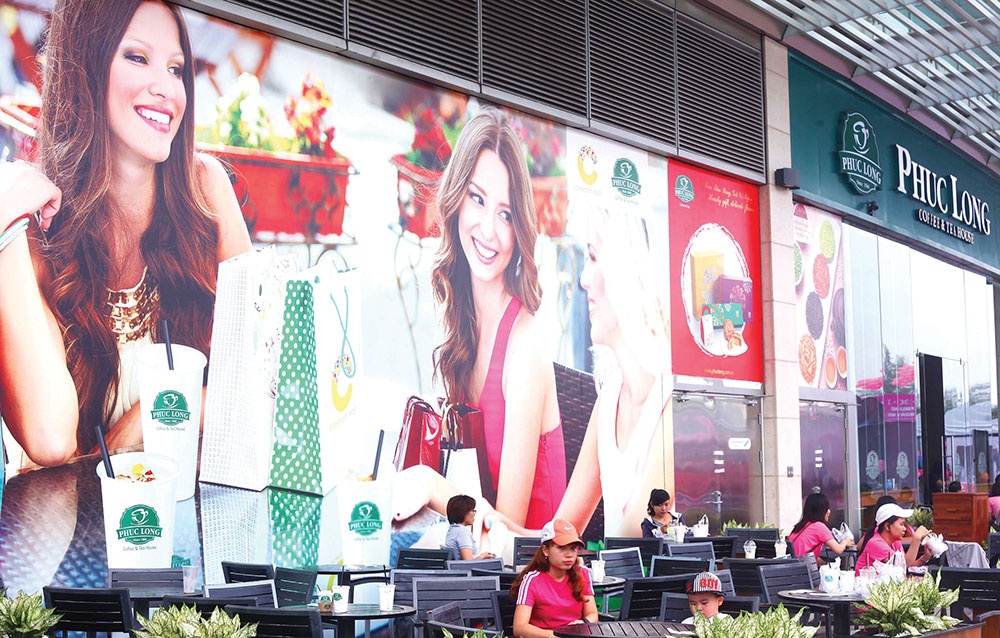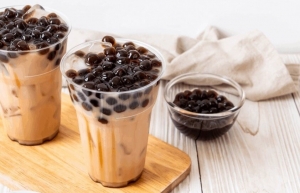Bubble tea players wrapping up expansions to conquer the vietnamese market
On August 1, Masan Group subsidiary The Sherpa Company Ltd. acquired 10.83 million shares, equivalent to 34 per cent equity interest in Phuc Long Heritage JSC for consideration of $154 million. This is the third time Masan has decided to invest in Phuc Long, continuing to raise the value of this tea and coffee brand to $450 million, six-fold compared to last year.
 |
| Bubble tea players wrapping up expansions to conquer the vietnamese market |
As a result of the transaction, Masan’s equity interest in the beverage chain has increased from 51 to 85 per cent.
The Sherpa had first acquired a 20 per cent stake in Phuc Long for $15 million in May 2021, on par with the valuation of this coffee and bubble tea chain at $75 million. In January, Masan Group spent $110 million to buy an additional 31 per cent stake in the Phuc Long tea and coffee chain, corresponding to a $335 million equity valuation of Phuc Long, thereby taking control of this beverage brand.
As part of the transaction, Masan entered a strategic cooperation agreement with Phuc Long to jointly develop the Phuc Long Kiosk model selling coffee and bubble tea at more than 2,200 Winmart+ stores nationwide and converting stores into destinations that satisfy the essential needs of consumers of all ages. As of June, Phuc Long operates 971 kiosks in Winmart+ and Winmart stores.
According to Masan’s strategy, they will increase Phuc Long Kiosk’s presence at destinations for all ages across the country and make their tea and coffee drinks become daily essential products that meet the highest standards.
A report by analytics company Reputa in July said bubble tea continued to lead the list of drinks that received the most coverage on social networks, accounting for more than 38 per cent of user discussions, followed by tea (26 per cent) and juice and coffee (both at 15 per cent).
Bubble tea was initially introduced in Vietnam two decades ago, as local vendors tried to recreate the popular Taiwanese milk, tea, and tapioca balls mix. As the beverage slowly grew in popularity, a number of foreign franchises started to emerge. Despite the market’s potential, many players avoid prime locations and prefer shopping malls and supermarkets to increase their market shares.
Estimates say there are about 1,500 bubble tea shops across the country with hundreds of brands competing fiercely in them, and the numbers continue to grow rapidly thanks to the participation of a series of large brands as well as expansion of existing ones.
Tran Ngoc An, the representative of bubble tea chain Gong Cha Vietnam acknowledged, “Bubble tea is more than a popular and ephemeral trend like spicy noodles or mango shakes, it seems to have become a familiar drink, especially with Gen Y and Gen Z.”
Big brands such as E-coffee of Trung Nguyen Group, The Coffee House, and the famous hot pot companies Haidilao and Manwah also put bubble tea on their menus, besides other drinks and food.
Confectionary producer KIDO Group, meanwhile, has launched the retail chain Chuk Chuk, which focuses on ice cream, tea, bubble tea, coffee, and other beverages and is controlled by TTV Trading Investment JSC, a member of the KIDO group.
The group hopes to roll out 300-400 stores in Vietnam by the end of this year and connect with strategic partners to expand into international markets, including Southeast Asia and South Korea. KIDO cooperates with the leading retail group in Thailand, Central Retail, to bring the Chuk Chuk chain to 39 GO! malls nationwide.
At the same time, it also ties up with Son Kim Group to implement a plan of introducing Chuk Chuk’s products in the GS25 store system.
Tram Le Nguyen, general director of KIDO Group said, “We choose to partner with retail giants to go far and fast. It is expected that by the end of this year, revenues from the Chuk Chuk brand can reach $21.7 million.”
Elsewhere, the Phe La brand debuted in 2021 with a small outlet in Pham Ngoc Thach street, which is suitable for takeaway. After receiving an enthusiastic response from customers,
three months later, it opened a new facility on Ly Thuong Kiet street with a bigger space. This brand created a breaking-through growth in early 2022 thanks to consecutively opening new outlets in Hanoi, Ho Chi Minh City, and Dalat.
However, alongside the expansion of small kiosks at supermarkets and retail stores, many bubble tea brands tended to close stores, even flagship ones, at prime locations.
Notably, many bubble tea stores disappeared from Ngo Duc Ke street in District 1 of Ho Chi Minh City, which lies close to Nguyen Hue pedestrian street and was turned into the so-called ‘bubble route’. At peak times, on Ngo Duc Ke Street alone, there were 10 of these outlets lined up along a stretch of just 100 metres.
However, many bubble tea stores have to cope with rising rents. Many flagship stores of Sharetea, The Alley, Royal Tea, and Mr Wish were closed on streets like Ton That Thiep and Nguyen Dinh Chieu.
Son Le, director of Vuong Hang Group, which owns Sharetea Vietnam, said that narrowing down the scale of bubble tea brands stores is an inevitable trend after a period of peak growth period to increase brand coverage.
“In Taiwan and Singapore, bubble tea brands prefer to open kiosks and small-scale stores to cover shopping malls and underground railway stations, among others. These models will help to save operation costs and decrease the drink’s selling prices. The more important thing is that these kinds of drinks can please customers of all ages and become daily drinks,” Son said.
 | Vietnam remains huge potential market for bubble tea Vietnam is a huge potential market for the bubble tea business. This drink is gradually becoming a favourite and popular drink among generations Y and Z. |
What the stars mean:
★ Poor ★ ★ Promising ★★★ Good ★★★★ Very good ★★★★★ Exceptional
 Tag:
Tag:
Related Contents
Latest News
More News
- Dong Ho folk painting added to UNESCO’s urgent safeguarding list (December 11, 2025 | 18:09)
- Conference focuses on switch from dog and cat meat trade to sustainable, safe jobs (December 11, 2025 | 12:13)
- 3F Plus clean pork amazes Michelin-starred chefs (December 09, 2025 | 12:15)
- The Rhythm of Blues – Colours of the Year 2026 (December 06, 2025 | 12:10)
- Pan Pacific Hanoi kicks off 2026 art awards celebrating young and disabled artists (November 06, 2025 | 18:25)
- PREP AI Language Fair 2025 highlights AI-powered language learning (November 03, 2025 | 09:00)
- Hanoi strengthens rabies control and supports transition of dog and cat meat trade (October 28, 2025 | 18:09)
- World-famous Gaia Earth installation touches down at UNIS Hanoi (October 07, 2025 | 13:40)
- Sidecar passion drives Vietnamese motor enthusiasts wild (September 05, 2025 | 09:00)
- Sheraton Saigon unveils artistic mooncake collection for 2025 (August 08, 2025 | 09:00)






















 Mobile Version
Mobile Version